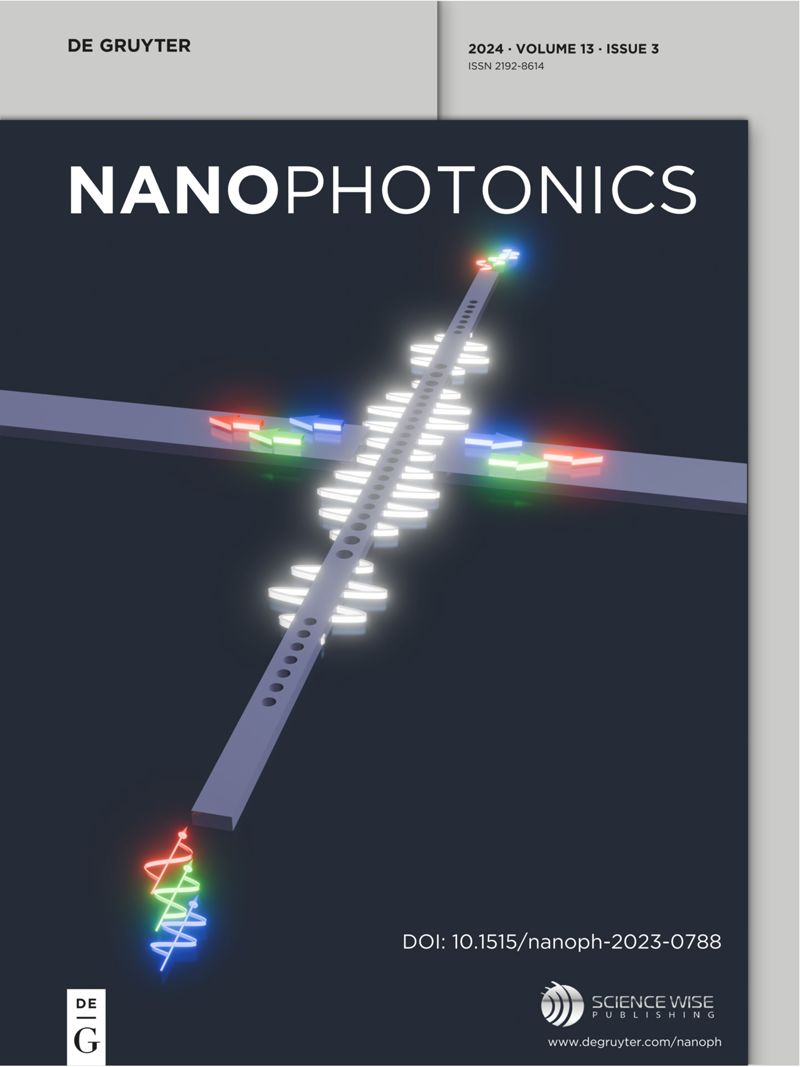Enhanced radiative cooling with Janus optical properties for low-temperature space cooling
IF 6.5
2区 物理与天体物理
Q1 MATERIALS SCIENCE, MULTIDISCIPLINARY
引用次数: 0
Abstract
Passive daytime radiative cooling that could provide sub-ambient cooling emerges as a promising technology to reduce household energy consumption. Nonetheless, prevailing studies are predominantly focused on surface cooling, often overlooking its adaptability to enclosed spaces with active cooling technologies. Here we present a multilayer radiative cooling film (利用简纳斯光学特性增强辐射冷却,实现低温空间冷却
日间被动辐射制冷可提供亚环境制冷,是一项很有前途的降低家庭能源消耗的技术。然而,目前的研究主要集中在表面降温方面,往往忽略了主动降温技术对封闭空间的适应性。在这里,我们展示了一种在中红外区域具有杰纳斯光学特性的多层辐射冷却薄膜(J-MRC),它由纳米多孔聚乙烯薄膜、聚氧化乙烯薄膜和纳米银丝组成。J-MRC 的顶面用作传统的辐射冷却材料,提供低于环境温度的表面冷却,而具有低中红外发射率的底面则通过热辐射将有限的热量传递给低温外壳。我们的实验证明,与传统的辐射冷却膜相比,J-MRC 具有更强的空间冷却性能。这项工作为辐射冷却材料提供了一种有价值的设计理念,从而扩大了其实际应用范围,并有助于减少碳排放。
本文章由计算机程序翻译,如有差异,请以英文原文为准。
求助全文
约1分钟内获得全文
求助全文
来源期刊

Nanophotonics
NANOSCIENCE & NANOTECHNOLOGY-MATERIALS SCIENCE, MULTIDISCIPLINARY
CiteScore
13.50
自引率
6.70%
发文量
358
审稿时长
7 weeks
期刊介绍:
Nanophotonics, published in collaboration with Sciencewise, is a prestigious journal that showcases recent international research results, notable advancements in the field, and innovative applications. It is regarded as one of the leading publications in the realm of nanophotonics and encompasses a range of article types including research articles, selectively invited reviews, letters, and perspectives.
The journal specifically delves into the study of photon interaction with nano-structures, such as carbon nano-tubes, nano metal particles, nano crystals, semiconductor nano dots, photonic crystals, tissue, and DNA. It offers comprehensive coverage of the most up-to-date discoveries, making it an essential resource for physicists, engineers, and material scientists.
 求助内容:
求助内容: 应助结果提醒方式:
应助结果提醒方式:


